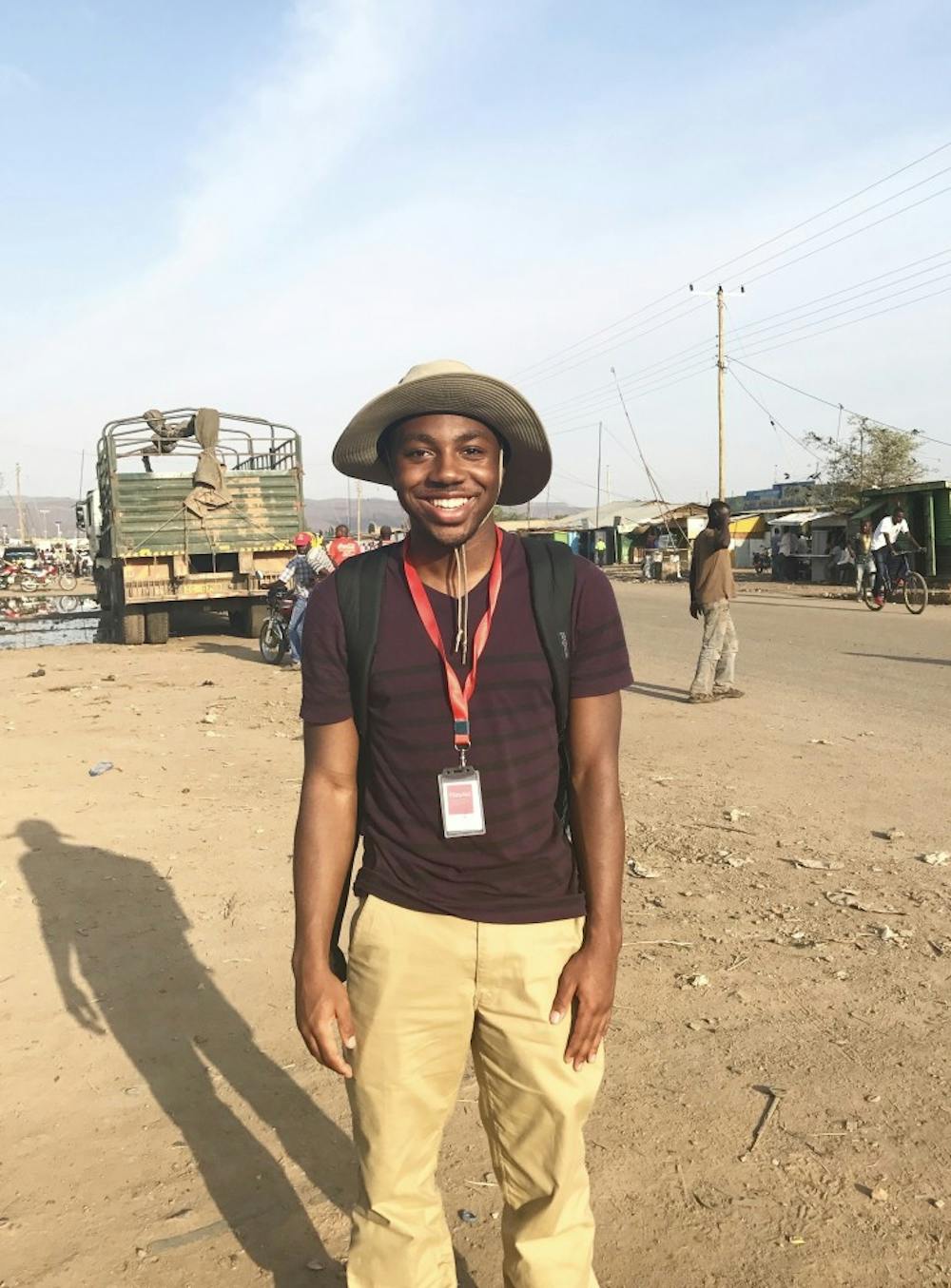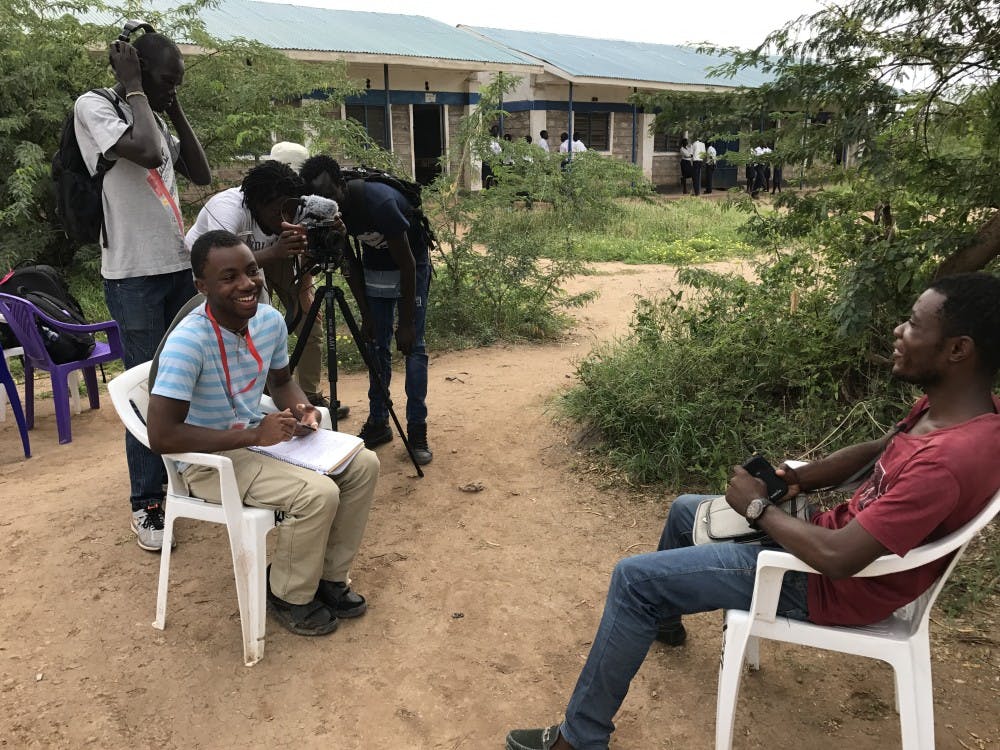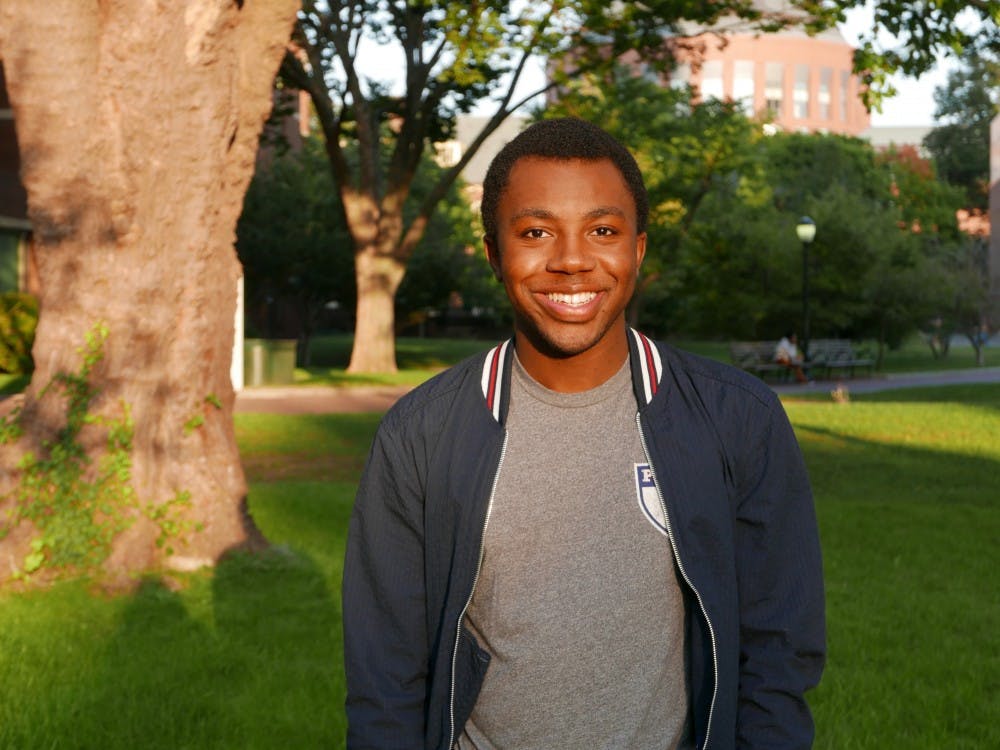Even though LA native Sonari Chidi (C '20) never envisioned himself behind the scenes of a documentary, there was a key element to documentary filmmaking that drew him to it: the ability to give a direct voice to those that are often ignored. This is what he does in his film, Shattering Refuge, in which he explores the media’s representation of refugees. He interviewed refugee filmmakers in Kenya, asylum recipients and immigrants in the U.S., as well as reporters who report on refugee and asylum issues.
Shattering Refuge was filmed over the course of a year and a half on three continents, with footage from Kakuma Refugee Camp in Kenya, Amman, Jordan, and Philadelphia. Getting access to the Kakuma Refugee Camp came with Sonari’s participation in the Penn–in–Kenya program in Summer 2017.
He knew he wanted to go above what the program requires, which was to collaborate with refugee filmmakers in the camp to make videos for new arrivals. So on his own, he thought about the “biased and inflammatory” representations of refugees in Western media, and wanted to know what the refugee filmmakers, who were also his team members, felt about the media coverage.

Photo provided by Sonari Chidi
Throughout the process of filming, there were moments of surprise. When interviewing a Kenyan national who is the head of operations for the NGO that runs the camp, he discovered that while American media has extremely anti–refugee rhetoric, Kenyan media broadcasts the same views.
Sonari described how this Kenyan woman's opinions of refugees changed as she started working with them: “The media made her think that refugees were these people that couldn’t help themselves, who were kind of just relying on resources…and she was so surprised when she went there. They’re starting their own businesses, they’re making films, they’re doing things for themselves, they want to improve their lives. Just because they’ve gone through a tough situation doesn’t mean that they are now defeated.”
It was also important for Sonari to not only talk to those who were being covered by the media, but also those doing the coverage. At a WHYY event about immigration and refugees, Sonari met a reporter, Emma Restrepo, who was an asylum recipient herself. Meeting and interviewing her enabled Sonari to include different perspectives in his film.

Photo provided by Sonari Chidi
When asked about films or filmmakers that have influenced him, most of the influential movies that Sonari listed were fictional (BlacKkKlansman, Sorry to Bother You, Mudbound, and Moonlight). However, he emphasized that documentary film "is a really powerful way to get at human truths in a multifaceted way."
"This is the person speaking for themselves. This isn’t a script. This isn’t a story that someone dreamed up that never happened. These aren’t things that are fictional. These are things that are happening right now...they are real. Just like you and me.”
Sonari spoke with warmth and happiness about his work and the people he met throughout the process. Whether it was interviewing professors here at Penn or refugees in Kenya, Sonari’s ability to connect with them over his passion for film and social change was electric.
As he continues to rack up awards and acclaim, his connection and passion don't seem to have faded at all. In the future, he hopes to have more screenings of the film in festivals and schools to help promote a more positive view of refugees and to humanize a situation that is constantly politicized.
He aims to keep working towards his main goal—to “galvanize people to do something."

